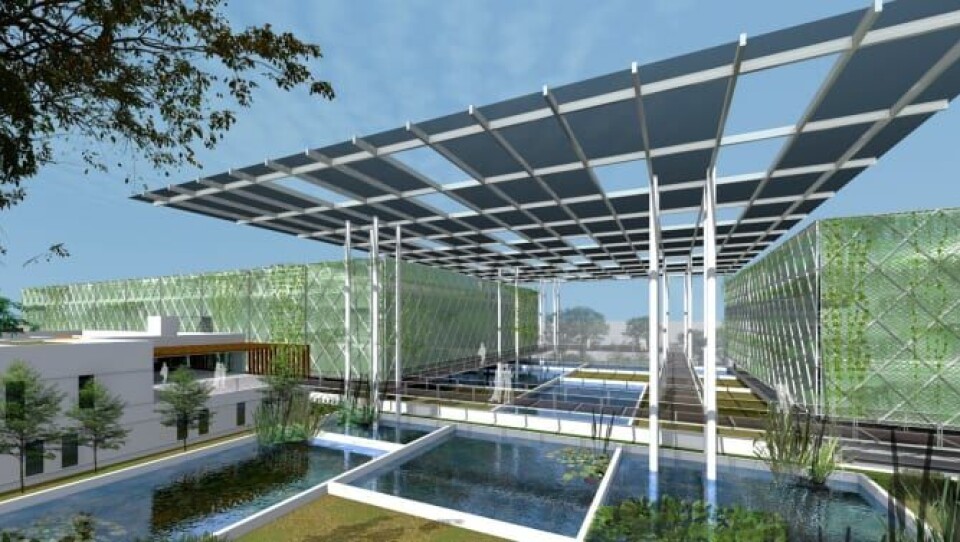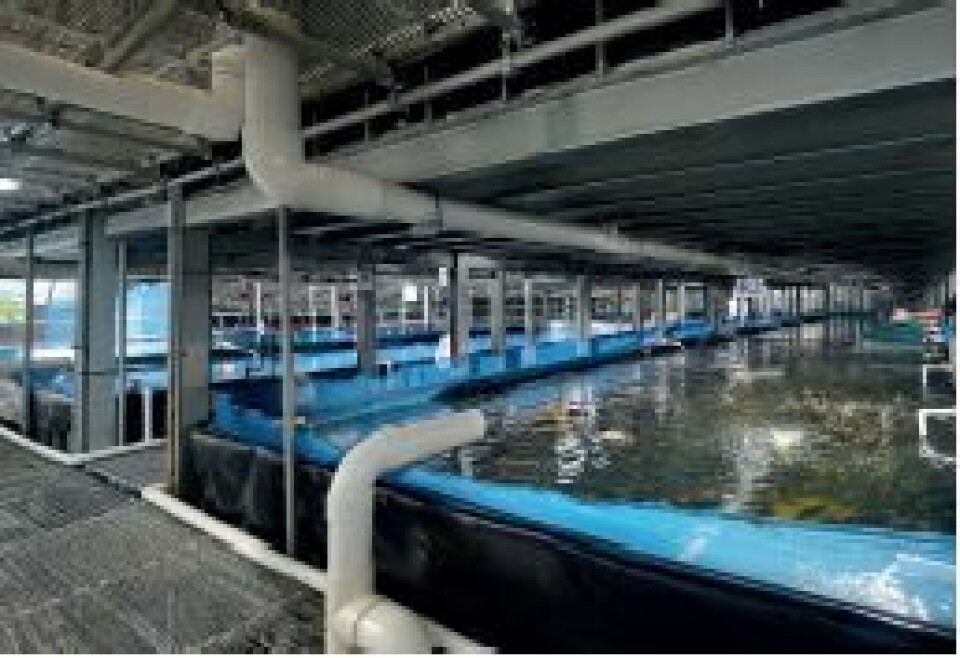
Coming to a rooftop near you - urban fish farms
Fish farms could be created in urban environments such as parks, unused rooftops and other community spaces, if a concept by two Singapore companies comes to fruition.
Consulting firm Surbana Jurong and Apollo Aquaculture Group have teamed up to create a high-intensity vertical farming concept called Floating Ponds.
The proposed modular and scalable Floating Ponds comprise vertically stacked fish raceways to maximise production capacity of the available space. The companies suggest such a concept would enable the farms to be commercially productive even within limited land areas and thus help ensure food security in land-scarce countries such as Singapore.

They say Floating Ponds can be built and function within any urban space available, ranging from a park space, to unused roof space as well as community spaces within larger commercial developments. Having the entire fish farm ecosystem within the city will bring food production and processing closer to the residents and encourage them to take a proactive role in productive farming, they suggest. If done on a large-enough scale, vertical farming could significantly contribute to Singapore’s food requirement and enhance its food security.
Self-sustainable, closed-loop farm system
Floating Ponds is designed to be self-sustainable through a closed-loop ecosystem where the exchange and flow of water, nutrients and energy are integrated. This means that waste from one unit becomes input for another, reducing wastage and creating by-products of value. The farm will also comprise a cold warehouse, processing and packing room, offices and R&D laboratories, integrating all farm processes into a singular facility.
SJ is ready to implement the Floating Ponds concept with partner AAG. AAG successfully prototyped a three-storey fish farm using its closed-system water reticulation technology. The prototype currently holds about 100,000 fish and fry. SJ’s Floating Ponds concept can increase this to six storeys or more and potentially yield almost 5,000 tonnes of food-fish per year when in full operation. The companies say this is six times more than conventional fish farm using the same amount of space.
Vibrant community hub
Wong Heang Fine, group chief executive of Surbana Jurong, said: “Surbana Jurong believes that innovative design and technology can play a significant role in agriculture and hi-tech farming in land-scarce Singapore. We are happy to partner Apollo Aquaculture Group in developing Floating Ponds, a concept that enables rapidly expanding high-density cities to build food resilience through creative and innovative usage of spaces. With such a vertical farming concept, Floating Ponds can maximise use of land and help make a small pocket of urban space significantly productive, enhance the surrounding ecology and generate a vibrant community hub with farming activities."
Eric Ng, group CEO of Apollo Aquaculture Group, said: “The farming sector is vibrant in Singapore, but there are obvious space constraints here. We need to break away from the conventional mould and advocate new ways of farming. We are delighted to collaborate with Surbana Jurong in developing Floating Ponds and look forward to modernising fish farming and bringing the aquaculture industry to new heights."























































